← Back
Want to learn more about how the human mind really works? Check out these awesome, must-read books in psychology and neuroscience!
Thinking, Fast and Slow
Daniel Kahneman
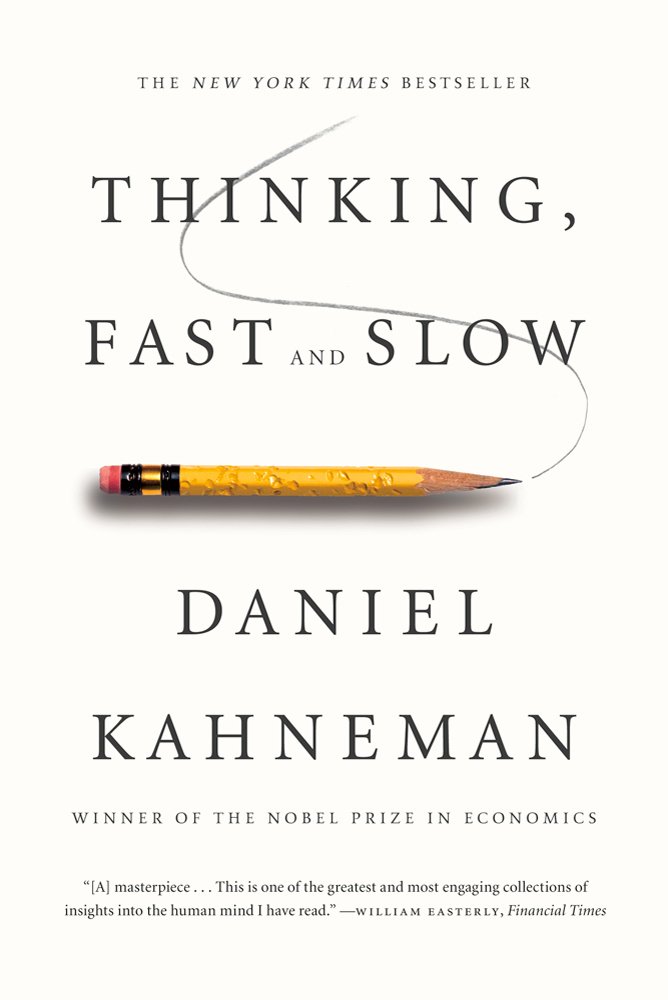
Cognitive psychologist Daniel Kahneman gives an in-depth breakdown of the two main types of thinking that run our daily lives: System 1 (which is fast, intuitive, and emotional) and System 2 (which is slow, deliberate, and logical). Kahneman is a ground-breaking researcher in cognitive psychology and won the Nobel Prize in Economics for his work on biases and heuristics.
The Power of Habit: Why We Do What We Do in Life and Business
Charles Duhigg
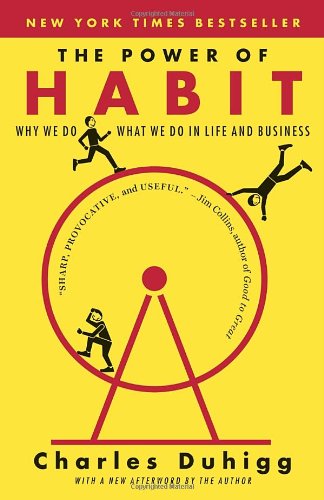
Pulitzer Prize–winning journalist Charles Duhigg does an excellent job combining the latest scientific research on habits and motivation and turning it into a practical formula that anyone can use to change their own daily choices and behaviors. A classic in both pop psychology and self improvement.
Me, Myself, and Us: The Science of Personality and the Art of Well-Being
Brian R. Little
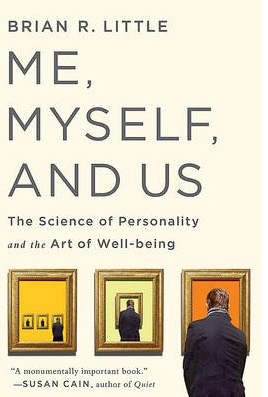
Harvard psychologist Brian R. Little takes a complete look at all the factors that influence our personalities and create who we are. This is a very interesting read on how to become more aware of our innate tendencies, but at the same time expand beyond them and grow as a dynamic human-being.
The Body Keeps the Score: Brain, Mind, and Body in the Healing of Trauma
Bessel van der Kolk
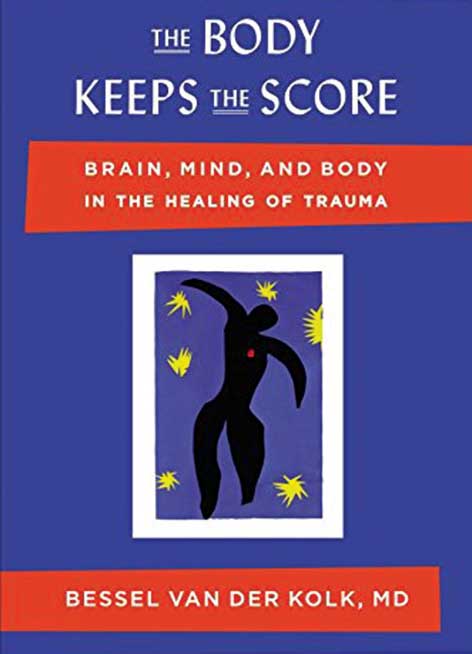
Psychiatrist Bessel van der Kolk is a pioneering researcher of trauma and has been treating patients for over 4 decades now. This book walks you through a combination of research and personal experience experimenting with different tools and techniques to help individuals manage their trauma. One key discovery throughout the book is helping individuals “reconnect with their bodies” in a healthy way.
Smarter Than You Think: How Technology Is Changing Our Minds for the Better
Clive Thompson
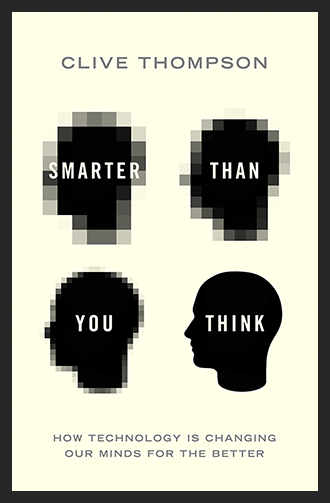
With every new development in technology, there will always be alarmists to warn of its devastating consequences. They’ll say things like, “Computers are making us all dumber!” However, in this sobering read, journalist Clive Thompson does a wonderful job showing how technology is actually making us smarter and improving our brains in a variety of ways.
The Righteous Mind: Why Good People Are Divided by Politics and Religion
Jonathan Haidt
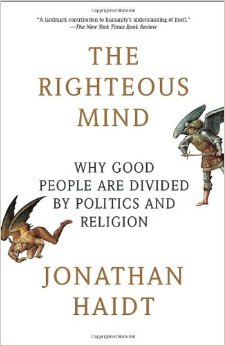
Why is it that people have such a hard time agreeing when it comes to things like politics and religion? Social psychologist Jonathan Haidt does a great job answering this question by sharing his own research into different moral beliefs and why people commonly talk past each other when it comes to these controversial topics. This book provides some very important insights into how to understand different points-of-view – and I highly recommend it to anyone who is interested in the intersections between politics and psychology.
The Upside of Your Dark Side
Todd Kashdan and Robert Biswas-Diener
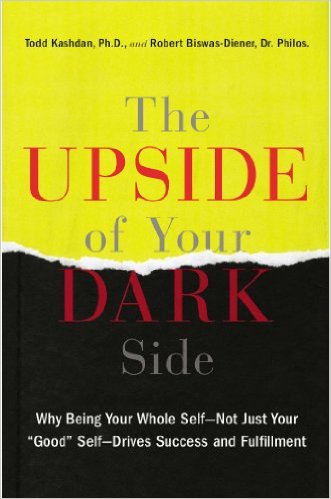
As the “positive psychology revolution” subsides, scientists and researchers are beginning to learn more about the benefits of negative emotions like sadness, guilt, anger, and shame. Psychologists Todd Kashdan and Robert Biswas-Diener do a fantastic job revealing the benefits of our “dark side” and how to harness it in a healthy and constructive way.
The Best Place to Work: The Art and Science of Creating an Extraordinary Workplace
Ron Friedman
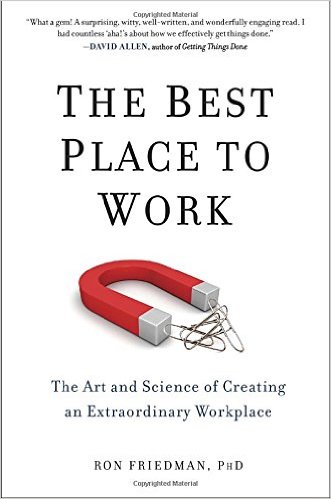
What makes workers both happier and more productive? In this book, psychologist Ron Friedman explores the many different factors that influence our work and productivity including our work environment, social relationships, and personal incentives. There are a lot of good insights and practical tips here for individuals wanting to improve their own work ethic, as well as bosses and managers who want to better motivate their employees.
Moonwalking with Einstein: The Art and Science of Remembering Everything
Joshua Foer
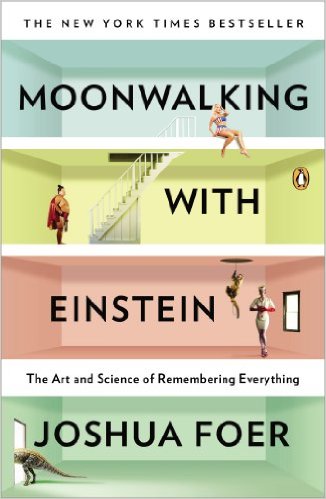
A fascinating look into the odd world of memory. Journalist Joshua Foer goes on a journey meeting the world’s top memory experts, including “mental athletes” who compete in Olympic-type memory competitions. Throughout the book, Foer learns about the science of memory from neuroscientists and psychologists, but he also discovers age old tricks for improving memory (sometimes called “mnemonics,” which started back in Ancient Greece). By the end of the book, he finds himself participating in memory competitions at a professional level.
The Wisdom of Psychopaths: What Saints, Spies, and Serial Killers Can Teach Us About Success
Kevin Dutton
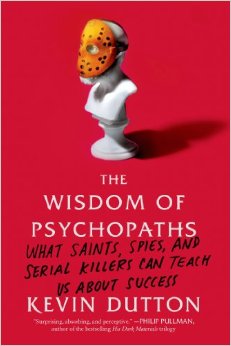
In this book, psychologist Kevin Dutton takes an interesting look into the minds of psychopaths. He theorizes that while many clinical psychopaths end up being criminals or severally mentally ill, there is another side to psychopathy that can be conducive to success and motivation. For example, psychopaths can be very goal-oriented, self-motivated, and habitual rule-breakers – and in certain contexts, that can allow psychopaths to thrive in today’s society. This is a very insightful book if you can keep an open mind and take it with a grain of salt.
The Blank Slate: The Modern Denial of Human Nature
Steven Pinker
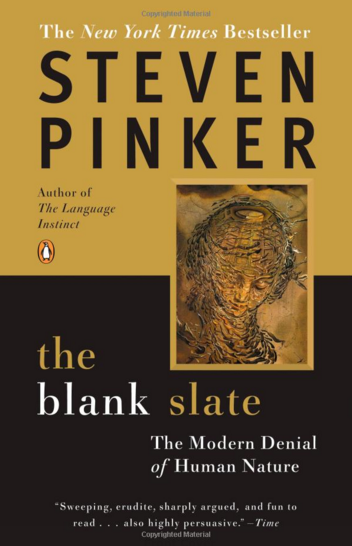
Evolutionary psychologist Steven Pinker argues that many of the social sciences are plagued by the “blank slate” hypothesis – which is the idea that we are all born the same and it is only our culture that defines us. While culture plays a big role in who we are, Pinker makes it clear that biology and “human nature” are important factors as well. We are products of millions of years of evolution, and those evolutionary influences are still playing a role in our behaviors today, even if we live in a vastly different world than our ancestors.
The Social Animal: Hidden Sources of Love, Character, and Achievement
David Brooks
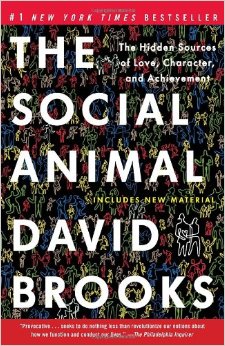
This book is best described as “a love story through the lens of psychology.” David Brooks shares the lives of two fictional characters – Harold and Erica – and then uses research from psychology, sociology, biology, and neuroscience to explain why each character makes the life decisions that they do. It’s a very ambitious work that shows you just how complicated our lives can be and how all of these factors intersect together to shape our lives.
Flourish: A Visionary New Understanding of Happiness and Well-being
Martin Seligman
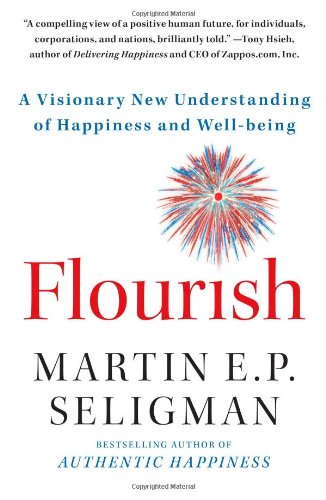
Martin Seligman is often consider the father of Positive Psychology. In this new book, he provides a complete framework for happiness, which includes 5 main pillars: positive emotions, engagement (or “flow”), relationships, meaning, and accomplishments. According to Seligman, happiness is more than just feeling “joy” or “pleasure,” and we have to pay attention to all of these main pillars to live a genuinely happy and satisfying life. This is a great summary of the research behind positive psychology and how it applies to our daily lives.
Seeing What Others Don’t: The Remarkable Ways We Gain Insights
Gary Klein
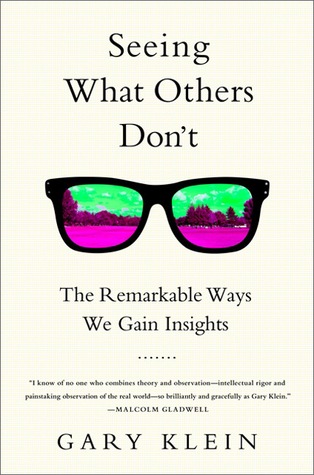
Where do insights come from? And how can we increase the flow of insights in our lives? These can seem like mysterious questions, but psychologist Gary Klein wasn’t afraid to dive into them. Instead of studying “insight” in a laboratory setting, he collected over a hundred case studies of insights, then does an amazing job dissecting these stories and discovering key commonalities between them. This is a very introspective and thought-provoking read that is bound to set off a few new neural pathways in your brain.
Hallucinations
Oliver Sacks
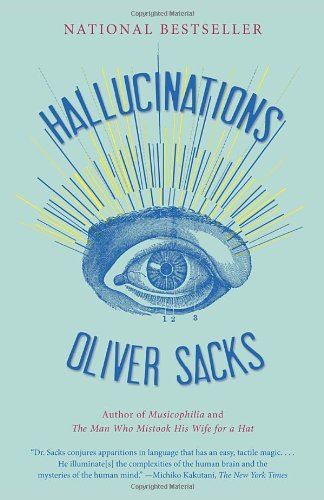
Perhaps one of the most famous neuroscientists of all time, this book was the last one published by Oliver Sacks before he passed away earlier this year. Hallucinations is a fascinating overview of the different types of hallucinations people can have. Sacks does a wonderful job “normalizing” the experience of hallucinations by making it clear that they aren’t always a sign of psychosis or mental illness. Instead, hallucinations can come from a variety of sources including migraines, dehydration, starvation, psychedelic use, and extreme amounts of stress. Keeping things personal, Sacks even opens up about some of his own hallucinatory experiences that he’s had over the years.
The Man Who Mistook His Wife for a Hat: And Other Clinical Tales
Oliver Sacks
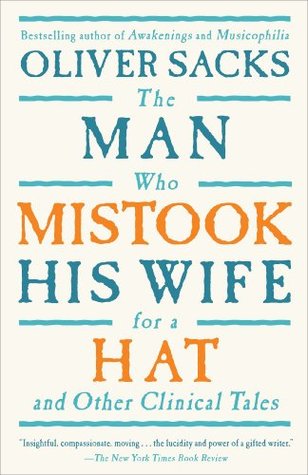
This is another Oliver Sacks classic. It’s also one of the first books that got me interested in neuroscience and psychology. Sacks shares a variety of bizarre stories about his patients as a clinical neurologist, including individuals with severe brain abnormalities, like not being able to recognize common objects, or feeling your limbs are alien to you, or losing a large chunk of your past memories, or being a super computer when it comes to solving mathematical problems. Overall, this book provides a really interesting look into just how incredible and puzzling the human brain can be sometimes.
Social Intelligence: The New Science of Human Relationships
Daniel Goleman

Psychologist Daniel Goleman is most known for his pioneering work on “emotional intelligence” (EQ). In this book, he takes his ideas one step further by not only describing how emotional intelligence works, but also how it applies to relationships, social skills, and what he calls “social intelligence.” This includes the neuroscience behind empathy, altruism, and cooperation – and how these abilities have evolved to become such an important tool in navigating our social world whether it’s at home, at work, or at a party with friends.
Willpower: Rediscovering the Greatest Human Strength
Roy F. Baumeister
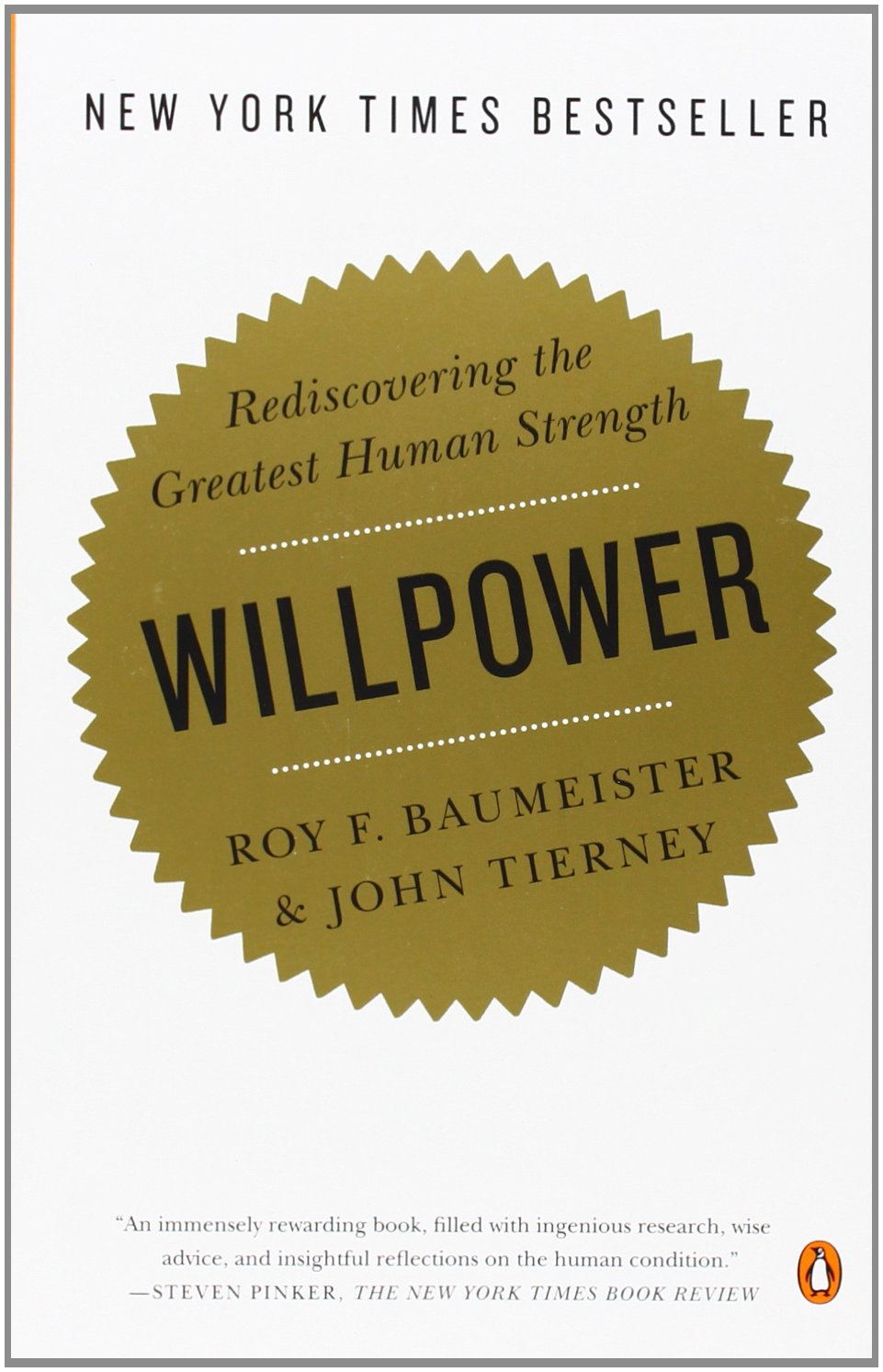
How much willpower and self-control do we really have over our choices and behaviors? Psychologist Roy Baumeister does an amazing job reviewing the latest psychology research on “willpower,” and how we can harness it more in our everyday lives. He discovers that willpower is a limited resource, but there are many practical and effective ways we can improve it and exercise it more often.
Predictably Irrational: The Hidden Forces That Shape Our Decisions
Dan Ariely
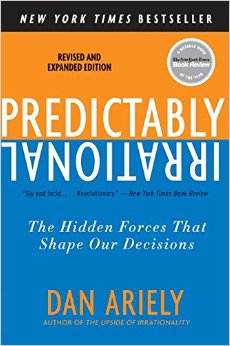
Dan Ariely was one of the first to popularize “behavioral economics,” which is a fast growing field that combines psychology with economics, by looking at how different factors influence our decision-making in the marketplace. In the past, economics has heavily relied on the notion that people are mostly rational and seek to maximize self-interest, but in this book Ariely destroys that assumption by showing just how irrational we can be when it comes to our everyday choices.
Flow: The Psychology of Optimal Experience
Mihaly Csikszentmihalyi
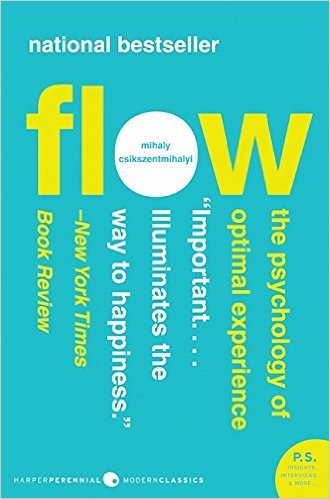
One of the most popular ideas to come out of positive psychology is the concept of “flow.” This is considered a mental state of “optimal performance” where an individual is highly focused and motivated on whatever task they are trying to accomplish. Athletes often refer to this as “in the zone,” but it’s a state that can also be found in artists, musicians, doctors, teachers, businessmen, and many other professions. In this book, psychologist Mihaly Csikszentmihalyi explores the many factors that influence “flow,” and how we can create this state in ourselves.
—
Steven Handel is a participant in the Amazon Services LLC Associates Program, an affiliate advertising program designed to provide a means for sites to earn advertising fees by advertising and linking to Amazon.com
